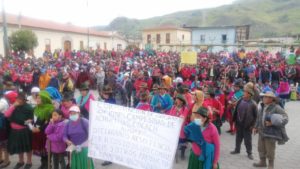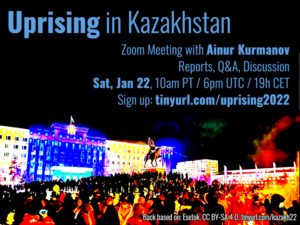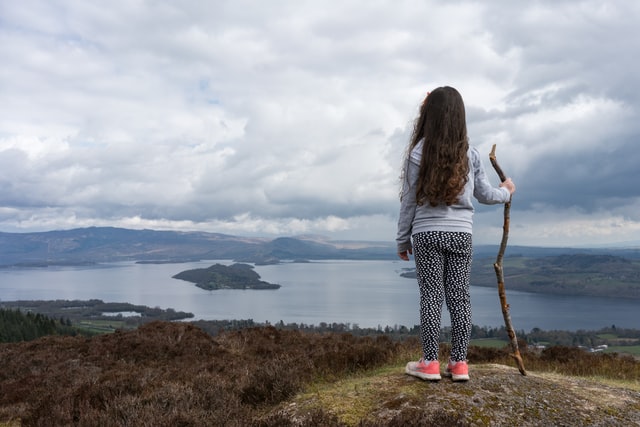Albania
Redi Muci
Aotearoa / New Zealand
International Socialist Organisation
Joe Carolan, Unite Union, Senior Organiser
Argentina
Christian Castillo, por la Dirección Nacional del Partido de los Trabajadores Socialistas (PTS)
Nicolás del Caño, Diputado Nacional por la Provincia de Buenos Aires por el Frente de Izquierda y de los Trabajadores – Unidad, dirigente del Partido de los Trabajadores Socialistas (PTS)
Myriam Bregman, Diputada Nacional por la Ciudad de Buenos Aires por el Frente de Izquierda y de los Trabajadores – Unidad, PTS, Abogada del CEPRODH – Centro de Profesionales por los Derechos Humanos
Alejandro Vilca, Diputado Nacional por la Provincia de Jujuy por el Frente de Izquierda y de los Trabajadores – Unidad, dirigente del Partido de los Trabajadores Socialistas (PTS)
Raúl Godoy, ex Diputado provincial de Neuquén por el Frente de Izquierda. Dirigente del PTS, ex Secretario General de SOECN (Sindicato de Obreros Ceramistas), obrero de la fábrica ex–Zanon recuperada por sus trabajadores
Eduardo Ayala, trabajador de Madygraf (ex Gráfica Donneley recuperada por sus trabajadores), PTS
Claudio Dellecarbonara, dirigente por la minoría de Asociación Gremial de Trabajadores del Subte y Premetro (AGTSYP) y referente de línea B de Subterráneos Buenos Aires. Diputado Provincial (Buenos Aires) electo por el Frente de Izquierda y de los Trabajadores Unidad, PTS
Australia
Caitlin Doyle-Markwick, Solidarity (IST), Media Entertainment and Arts Alliance
Miroslav Sandev, Solidarity / Teacher’s Federation
Luke Alexander, NTEU
Dani Cotton, National Tertiary Education Union, Branch Committee, University of Sydney
Susan Price
Mick Armstrong, Socialist Alternative, National Executive
Austria
Christian Zeller, Netzwerk Ökosozialismus, Global Ecosocialist Network, Professor of Economic Geography, University of Salzburg
Manfred Ecker, Gewerkschaft der Privatangestellten GPA, Member
David Heuser, Linkswende
Heidi Specht, Arbeiter*innenstandpunkt
Karin Wilfingseder, GPA (Trade Union), Shop Steward
Belgium
Daniel Tanuro, Gauche anticapitaliste, Ecosocialist author
Jean Vogel, Marcel Liebman Insitute, President
Eric Toussaint, Fourth International, international activist & historian
Freddy Mathieu, FGTB, Ancien Secrétaire Régional
SAP – Antikapitalisten / Gauche anticapitaliste
Nick Van de Vel
Britain / England and Wales
Simon Hannah, Lambeth UNISON, Joint Branch Secretary
Fiona Lali, Marxist Student Federation (MSF)
Anne Alexander, Middle East Solidarity magazine, Co-editor
Labour Representation Committee (LRC)
Neil Faulkner, , Archaeologist, historian and writer
Kazakh Solidarity Campaign
John McInally, Public & Commercial Services Union, Former Vice-President
Socialist Appeal
Workers Power
Ukraine Solidarity Campaign
Alex Callinicos, Emeritus Professor of European Studies, King’s College London
Andy Richards, UNISON, Brighton and Hove Branch Chair
Gareth Jenkins, SWP
Jon Woods, Portsmouth City UNISON, Chair
Gilbert Achcar, UCU, Professor
Michael Tucker
Ian Parker, Unite
Andrew Kilmister, Oxford Brookes University UCU (Universities and Colleges Union), Branch Secretary
Rowan Fortune, Anti*Capitalist Resistance, EC Member
Penny Foskett, SWP. NEU
Tony Foley, NEU, England
ACR, Anti*Capitalist Resistance, England and Wales
Alan Thornett, UNITE
Nigel Smyth
Elizabeth Lawrence, University and College Union (personal capacity)
Canada
Liam Chiasson
Costa Rica
Paola Zeledón, editora de La Izquierda Diario Costa Rica.
Fernanda Quirós, dirigente de Pan y Rosas Costa Rica
Esteban Fernández, dirigente de OSR, profesor de filosofía UCR.
China
Liu Haoyu
Fan Zeng
陈 归尘
Peter Yang
Cuba
Frank García Hernández, Comunistas Cuba blog, member of the Editorial Board
Cyprus
Athina Kariati, NEDA – New Internationalist Left
New Internationalist Left, NEDA
Denmark
Søren Sondergaard, Red-Green Alliance, Member of Danish Parliament, spokesperson on European Affairs
Lene Junker, Internationale Socialister
Dominican Republic
Movimiento Socialista de Trabajadoras y Trabajadores, MST
France
Christian Mahieux, International Labour Network of Solidarity and Struggles
Malewski Jan, Inprecor (révue), rédacteur
Penelope Duggan, International Viewpoint, Editor
Michael Löwy
Nouveau Parti Anticapitaliste / New Anticapitalist Party
Anasse Kazib, rail worker, Sud Rail, candidate to the French presidency for Révolution Permanente
Adrien Cornet, refinery worker (Grandspuit), CGT Total, Révolution Permanente
Philippe Alcoy, RévolutionPermanente.fr, editorial board
Germany
Yaak Pabst, Redaktion marx21-Magazin
Michael Findeisen, Fellow
Joachim Ladwig, Verdi
Daniel Behruzi, ver.di TU Darmstadt (Trade Union), Shop Stewards Speaker
Alexander Keim, LiK/ die Linke/Verdi
Internationale Sozialistische Organisation (ISO)
Dr. Winfried Wolf, Lunapark21 – Zeitschrift zur Kritik der globalen Ökonomie, responsable in the editorial board of LP21-Magazine
Aron Amm, Lernen im Kampf
Martin Suchanek, Gruppe ArbeiterInnenmacht, Germany section of League for the Fifth International, Editor of journal “Revolutionärer Marxismus”
Wilhelm Schulz, Gruppe ArbeiterInnenmacht, German Section of the League for the Fifth International
Jaqueline K. Singh, REVOLUTION – international communist youth organisation Germany
Matthias Fritz, former TU converer (VK-Leiter) IG Metall Mahle
Oskar Fischer, Soziologe, Revolutionäre Internationalistische Organisation
Stefan Schneider, Politologe, Revolutionäre Internationalistische Organisation
Charlotte Ruga, Hebamme, Revolutionäre Internationalistische Organisation
Tabea Winter, Studentin, Revolutionäre Internationalistische Organisation
Thies Gleiss, Die Linke, Member of National Party Executive
Christph Waelz, German Education Union, GEW Barlin-Pankow (personal capacity)
Greece
Panos Garganas, Sosialistiko Ergatiko Komma (SEK), Editor Workers Solidarity weekly
Editorial Team of Elaliberta.gr, www.elaliberta.gr, Athens
Serafeim Rizos, Chania city/Union of Teachers-Chania, councilor Chania/member of board of Teachers Union Chania
Thanasis Diavolakis, Peiraus city/Teachers Federation of private schools, councilor Peiraus city/member of board of OIELE
Katerina Thoidou, Nikaia-Renti city, councillor
Maria Styllou, Sosialismos apo ta kato Review, Editor
Thanasis Kampagiannis, Athens Bar Association Board, Elected councillor (personal capacity)
ANTARSYA, Front of the anticapitalist Left
Xekinima – Internationalist Socialist Organization
NAR, New Left Current
Manthos Tavoularis, Docker, trade unionist
Tassos Anastassiadis, member of General Council of POESY (Federation of Greek journalists)
TPT (Fourth International Programmatic Tendency, Greek Section of 4th International)
Petros Constantinou, Athens city/KEERFA-Movement United Against Racism and Fascist Threat, councillor Athens city/coordinator of KEERFA
Aphrodite Fragkou, Marousi city, councillor
Dimitris Zotos, Lawyers Association of Athens, Civil action Golden Dawn trial
India
Rohini Hensman, Internationalism from Below, Writer, researcher and activist
Sushovan Dhar, Vice-President, Progressive Plantation Workers Union (PPWU)
International
International Marxist Tendency
Revolutionary Communist International Tendency (www.thecommunists.net)
Pierre Rousset, international activist
Iran
Morad Shirin, Shahrokh Zamani Action Campaign, International Organiser
Maziar Razi, Iranian Revolutionary Marxists’ Tendency, Spokesperson
Ireland
Bríd Smith, People Before Profit, TD (Member of Parliament)
Paul Murphy, People Before Profit, TD (Member of Parliament)
Gino Kenny, People Before Profit, TD (Member of Parliament)
Richard Boyd Barrett, People Before Profit, TD (Member of Parliament)
Gerry Carroll, People Before Profit, MLA (Member of the Legislative Assembly)
Mick Barry, Solidarity and Socialist Party, TD (Member of Parliament)
People Before Profit
Socialist Democracy
Goretti Horgan, People Before Profit
Jess Spear, RISE, National Organiser
John Molyneux, People Before Profit, Unite The Union., Editor, Irish Marxist Review
Ailbhe Smyth, Le Cheile: Diversity Not Division, Member
Eddie Conlon, Teachers Union of Ireland, Member/Former National Hon Secretary
Emilio Maira, People Before Profit
Memet Uludağ, Unite the Union, Union Rep
Shaun Harkin, People Before Profit, People Before Profit Cllr Derry City and Strabane District Council
Mark Price
Mark Finnegan, People Before Profit
Italy
Giacomo Turci, La Voce delle Lotte, editor
Scilla Di Pietro, Il Pane e le Rose feminist current, spokesperson
Mary Rizzo, Le Voci della Libertà, Activist / Translator
Japan
Tsutomu Teramoto, Japan Revolutionary Communist League (JRCL)
JRCL (Japan Revolutionary Communist League)
México
Jose Manuel Aguilar Mora, Universidad Autónoma de la Ciudad de México & Member of La Liga De Unidad Socialista (LUS), Professor-Researcher, Partido Revolucionario de los Trabajadores
Edgard Sánchez, Partido Revolucionario de los Trabajadores
Flora Aco González, trabajadora estatal reinstalada, ex aspirante a candidata a diputada por el Frente de Izquierda Anticapitalista en la Ciudad de México, MTS
Sulem Estrada, maestra de secundaria, ex candidata anticapitalista al Congreso de la Ciudad de México, Agrupación Nuestra Clase , MTS
Miriam Hernandez, trabajadora de la UNAM, ex candidata anticapitalista al Congreso de la CdMX, MTS
Mario Caballero, Movimiento de las y los Trabajadores Socialistas
Nancy Cazares y Alex Osorio, ex presos políticos de 10 de junio de 2013, MTS
Nigeria
Salako Kayode, Revolutionary socialist movement, Spokesperson
Dimeji Macaulay, Revolutionary Socialist Movement, National Organiser
Revolutionary Socialist Movement
Poland
Andrzej Żebrowski, Pracownicza Demokracja (Workers Democracy)
Agnieszka Kaleta
Michał Wysocki, Pracownicza Demokracja (Workers’ Democracy), worker
Filip Ilkowski Associate Professor, Polish Teachers Union at the University of Warsaw, Member of the Presidium of the Council for Higher Education and Science of the Polish Teachers Union
Bronislaw Czarnocha, Hostos CC/CUNY (personal capacity)
Portugal
Semear o futura
Russia
Daria, IST Russia,
Semyon, Trotskyist
Socialist Tendency (IST)
Denis Zagladkin, Socialist Tendency
Scotland
Paul Inglis, Radical Independence Campaign, Glasgow City Branch Unison, Clydeside IWW, Partick Living Rent, Member
Connor Beaton, Republican Socialist Platform, Secretary
Allan Armstrong, Republican Socialist Platform, Educational Institute of Scotland (life member)
Frances Curran, Former member of parliament and member of Socialist for Independence
Pete Cannell, Scot.E3 (Employment, Energy and Environment), Secretary
Bob Goupillot, Radical Independence Campaign Edinburgh, (Personal Capacity)
Ecosocialist.scot (organisation), ecosocialist.scot
Graham Campbell, SNP Councillor in Glasgow Glasow (personal capacity)
Campbell McGregor, Scottish Socialist Party / UNISON
Donny Gluckstein, SWP, Educational Institute of Scotland, EIS Council
South Africa
Mametlwe Sebei, President, General Industries Workers Union of South Africa
South Korea
Workers’ Solidarity
Spanish State
Anticapitalistas
David Karvala, Social movement activist and member of Marx21.net, Catalunya
Carlos de Pablo Torrecilla, UGT de Catalunya , Secretari de Política Institucional, Catalunya
Gerardo Pisarello, Unidas Podemos-En Comú Podem, member of the Spanish Congress, and First Secretary of the Bureau of the Congress
Miguel Urbán Crespo, Anticapitalistas, Member of the European Parliament
Marx21.net
Santiago Lupe, portavoz de la Corriente Revolucionaria de Trabajadores y Trabajadoras – CRT, historiador
Lucía Nistal, doctora en Teoría Literaria Universidad Autónoma de Madrid (UAM), impulsora de Referéndum UAM y portavoz de CRT
Juan Carrique, abogado laboralista, miembro de la Asociación Libre de Abogadas y Abogados, afiliado a CGT
Josefina L. Martínez, periodista, historiadora, escritora, editora revista Contrapunto
Asier Ubico, presidente del Comité de Empresa de Telepizza por CGT – Zaragoza
Juan Carlos Arias Sanz, delegado por UGT de la Consejería de Políticas Sociales y Familia de la Comunidad de Madrid
Cynthia Lub, doctora en Historia, escritora, editora de Esquerra Diari.cat y afiliada a CGT Lleure
Maria Dantas, ERC, social movement activist in Catalunya, Member of the Congress of Deputies
Omar Noumri Coca, Mayor of Castelló de Farfanya (Catalunya) , member of ERC.
Rodrigo Díaz López, Unión de Juventudes Comunistas de España
Enrique Fernando Santiago, Secretario General del PCE y Secretario de Estado de España, en representación de todo el PCE
Pedro Cortés Costoya, Unión de Juventudes Comunistas de España (UJCE).
Switzerland
Manuel Sepulveda, Mouvement pour le Socialisme, Militant actif
Stéfanie Prezioso, Ensemble à Gauche, Member of Parliament
Jean BATOU, Ensemble à Gauche, Member of parliament (Geneva)
Philipp Schmid, Movement for Socialism, teacher and union activist
Christian Zeller, Network Ecosocialism and Global Ecosocialist Network, Professor of Economic Geography
Corriente Revolucionaria de Trabajadoras y Trabajadores (CRT, miembro de la FT-CI) (Estado Español)
Hannah, Bewegung für den Sozialismus
Sweden
Jonas Brännberg, Rättvisepartiet Socialisterna – International Socialist Alternative, Member of Luleå City council
Arbetarmakt Workers Power
Syria
Jackal, Revolutionary Left Movement
Taiwan
黃梓豪, International Socialist Forward
Fang, International Socialist Forward
Nicholas Soo, International Socialist Forward
Turkey
Sosyalist Demokrasi için Yeniyol, Turkish section of IV. International
Ecehan Balta, Sosyalist Alternatif
Nihat Boyraz, Sosyalist Alternatif
Sosyalist Alternatif
Ukraine
Pavlo Viknyanskyy, («Республіка») political party (personal capacity)
USA
Andrew Berman, Veterans for Peace, Peace and Solidarity Activist
Brandon Madsen, Democratic Socialists of America / AFGE 2157
Reform & Revolution, Caucus of Democratic Socialists of America
Dan La Botz, New Politics, Co-Editor
Tyron Moore, Washington Federation of State Employees, Organizer
Phil Gasper, New Politics, Co-editor
Richard Burton, Montgomery County Education Association (ID purposes only), UniServ Director/Organizer
Tempest Collective
E. Reed, Boston Revolutionary Socialists, Coordinating Committee Member
David McNally, Editor in Chief, Spectre Journal, Professor of History, University of Houston
Steve Leigh, Seattle Revolutionary Socialists (*for identification purposes only)
Joel Geier
Sherry Wolf, Tempest Collective, author, Sexuality and Socialism
Socialist Resurgence
Charles Post, Tempest Collective, the Democratic Socialists of America (DSA), member of editorial board of Spectre: A Marxist Journal
Zachary Levenson, Editor, Spectre, Assistant Professor of Sociology, UNC Greensboro
Ashley Smith, Tempest Collective, Democratic Socialists of America*, National Writers Union* (*for identification purposes only)
Marx21, marx21us.org
Stephen Oren
Peter Ranis, Professor Emeritus, Political Science, Graduate Center, CUNY (personal capacity)
Elliot Podwill, PSC-CUNY (personal capacity)
Carol Lang, PSC/AFT (personal capacity)
Howard Pflazer, PSC-CUNY (personal capacity)
Ruy Martinez, DSA (personal capacity)
Michael Beyer, DSA (personal capacity)
Thomas Harrison, New Politics editorial board member (personal capacity)
Paul Goodspeed, South New Hampshire DSA
Matthew Chociej
Frieda Afary, Producer of Iranian Progressives in Translation
Derek Bartholomew, Tempest Collective (personal capacity)
Criage Lynnette Althage, DSA member
Stephen Shalom, New Politics (personal capacity)
Somak Paul, DSA organiser (personal capacity)
Coco Smyth, Revolutionary Socialist Network (personal capacity)
Venezuela
Angel Árias, dirigente de la LTS, trabajador estatal
Suhey Ochoa, Pan y Rosas, trabajadora de Apps
Zimbabwe
Tafadzwa A Choto, ISO – Zimbabwe, Member



